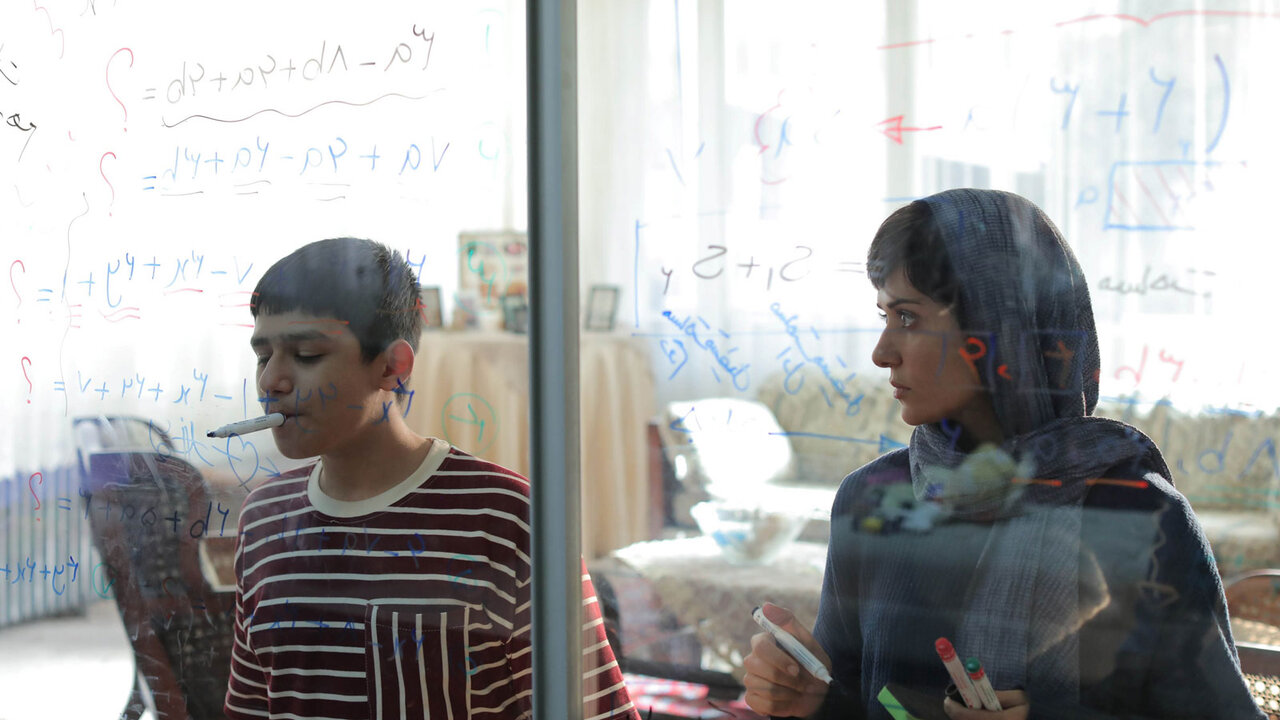Melbourne International Film Festival to host four films by Iranian directors

TEHRAN – Four films by Iranian filmmakers has been selected by the Melbourne International Film Festival (MIFF) to attend its 73rd edition, set to take place from August 7 to 24 in Melbourne, Australia.
“Put Your Soul on Your Hand and Walk” by Sepideh Farsi, “Cutting Through Rocks” by Sara Khaki and Mohammadreza Eyni, “Woman and Child” by Saeed Roustaee, and “Razeh Del” by Maryam Tafakory are the Iranian movies to be shown at the event, ISNA reported.
The documentary “Put Your Soul on Your Hand and Walk” is about life in Gaza during the ongoing Israeli military actions.
The 112-minute France/Palestine film is the Iranian filmmaker’s response to the ongoing massacre of Palestinians. Farsi thinks that a miracle happened when she met Fatima Hassouna. She became her eyes in Gaza, where she resisted while documenting the war, and Farsi became a link between her and the world, from her “Gaza prison,” as she named it.
They maintained this line of life for almost a year. The bits of sound and pixels that they exchanged became the film. The killing of Fatima on April 16, due to an Israeli raid on her house, changes its meaning forever.
The Iranian documentary “Cutting Through Rocks” tells the story of Sara Shahverdi, the first elected councilwoman of her village, who aims to break long-held patriarchal traditions by training teenage girls to ride motorcycles and stopping child marriages. When accusations arise questioning Sara’s intentions to empower the girls, her identity is put in turmoil.
A joint production of Iran, Germany, the U.S., Qatar, the Netherlands, Chile, and Canada, the 95-minute movie was the winner of the World Cinema Documentary Grand Jury Prize at the World Cinema Documentary Competition of the Sundance Film Festival earlier this year.
In “Cutting Through Rocks,” the directors deliver a deeply intimate and quietly defiant portrait of resistance and resilience. Their debut feature documentary follows Sara Shahverdi, the first elected councilwoman in a rural Iranian village, as she attempts to dismantle deeply rooted patriarchal structures and empower young women to imagine a future of freedom, education, and autonomy.
At the heart of the film lies Shahverdi herself—a remarkable, trailblazing figure who drives a car through dusty village roads, teaches teenage girls how to ride motorbikes, and campaigns against the still-prevalent practice of child marriage. The camera, handheld and unvarnished, stays close to her, never interfering but always alert to the emotional and political weight of her daily struggles. It’s this raw, observational approach that lends the film its quiet power and cumulative tension.
Sara’s charisma and sheer willpower drive the narrative forward. As she pushes girls to stay in school, dream of careers in medicine, teaching, or engineering, and take control of their lives, her vision becomes a glimmer of hope in an otherwise suffocating social landscape. Yet her journey is far from smooth. Suspicion and resentment surround her. When allegations surface questioning her intentions with the young girls she mentors, Sara’s own identity is scrutinized and eventually attacked.
Roustaee’s fourth feature film “Woman and Child” is described as a contemporary family drama of revenge and forgiveness. The film stars Parinaz Izadyar as a single mother who balances nursing work with raising her children. As she plans her wedding to Hamid, her son's school expulsion becomes the least of her worries when an unexpected tragedy forces her to fight for what's right.
Payman Maadi, Hassan Pourshirazi, Soha Niasti, Fereshteh Sadre Orafaee, Maziar Seyedi, and Sahar Goldoost are also in the cast.
The short film “Razeh Del” is a joint production of Iran, Italy, and the UK. The 2024 film, 27 minutes, is about two girls who sent a letter to the first-ever women's newspaper in Iran, titled “Zan,” in 1998. While they waited to get published, they considered making an impossible film. Using citations and image intervention, “Razeh Del” journeys through parallel histories of war on images of women.
MIFF’s 73-year history significantly contributes to Melbourne’s standing as a cultural city. With its ongoing commitment to the collective festival experience being open to all, MIFF has contributed to community and connectedness in Melbourne. Audiences come to MIFF for its bold, diverse, and adventurous programming. There is delight in the shared cinema experience and in seeking to discover something new about the self or the world.
The 2025 program comprises films that will hone the audiences’ minds to the urgent matters of the world, and others that will take them far from any semblance of reality.
Across the 250-plus features and short films, there are stories from all corners of the globe. The program holds up a mirror to our world. MIFF is committed to being a safe and welcoming place for everyone, including the audiences, visiting guests, filmmakers, staff, and volunteers, with an expansive program to suit all cinema-loving tastes.
SS/SAB
Leave a Comment